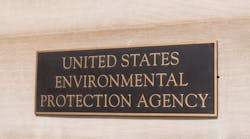The Bureau of Ocean Energy Management (BOEM) released a final rule May 14 that updates air pollution controls for most offshore oil and gas operations—but without the extensive changes proposed in 2016 by the Obama administration.
The final rule makes a few changes in specifications, such as replacing the old standard for total suspended particulate matter (PM) with the PM2.5 and PM10 standards of the Environmental Protection Agency (EPA). It also revises a table of “significance levels” used to determine the limits placed on emission levels.
The regulatory changes apply to oil and gas operations in the western and central Gulf of Mexico and off the coast of the North Slope Borough of Alaska. EPA has jurisdiction over air quality in all other parts of the Outer Continental Shelf.
The regulations are intended to prevent pollution in all onshore state areas from exceeding national ambient air quality standards.
Trump versus Obama regulations
The Obama administration’s proposed rule would have been more restrictive and expensive. Oil and gas industry associations and companies objected that no need for the changes had been demonstrated.
For the proposed rule, BOEM estimated costs would exceed benefits by $97 million over 10 years. An industry-commissioned study said the costs would exceed benefits by $3.4 billion over 10 years, or 35 times what the agency calculated.
The proposed rule would have expanded the application of the regulations, made them more restrictive, set new requirements for how to measure and report emissions, and changed some procedures.
BOEM said its final rule avoids proposals that would have been unduly burdensome or that went beyond the agency’s authority under the Outer Continental Shelf Lands Act (OCSLA) or conflicted with that law’s mandates.
The proposed rule, for example, would have applied the air rules to support vessels and aircraft, but BOEM in its final rule said OCSLA does not give BOEM authority over support vessels or aircraft.
BOEM also said proposed changes to use EPA rather than BOEM procedures could have prevented BOEM from meeting its OCSLA obligations on time periods for review and approval of exploration, development, and production plans.
